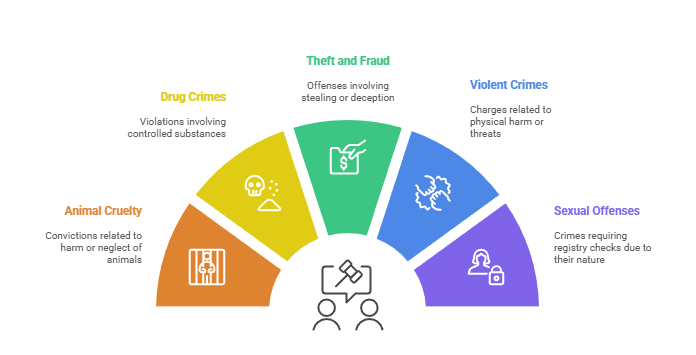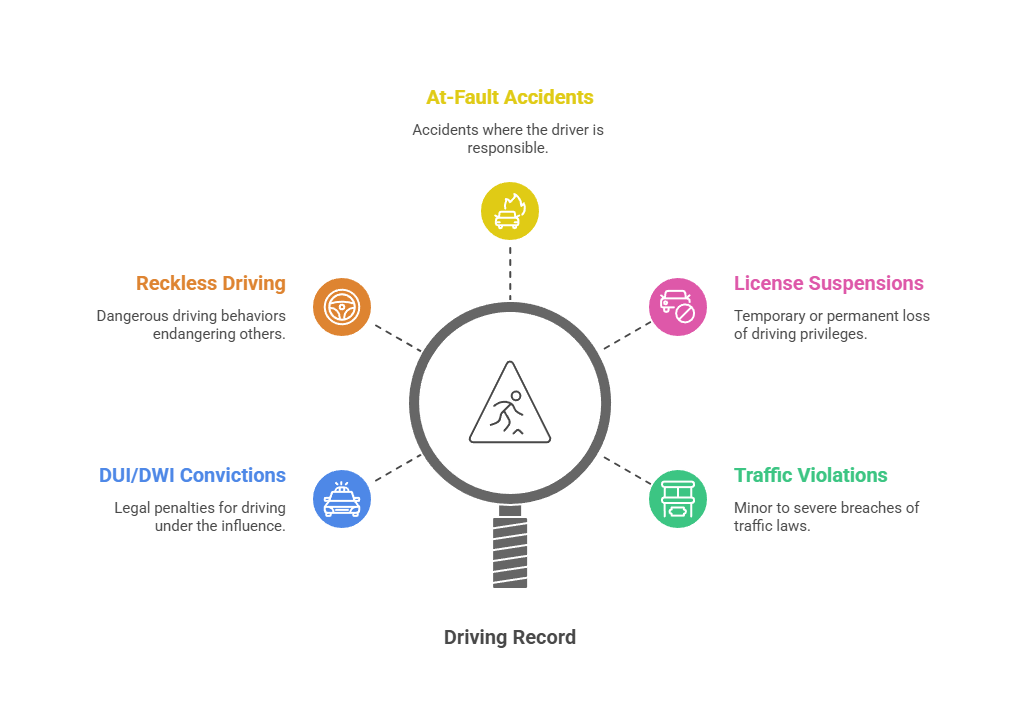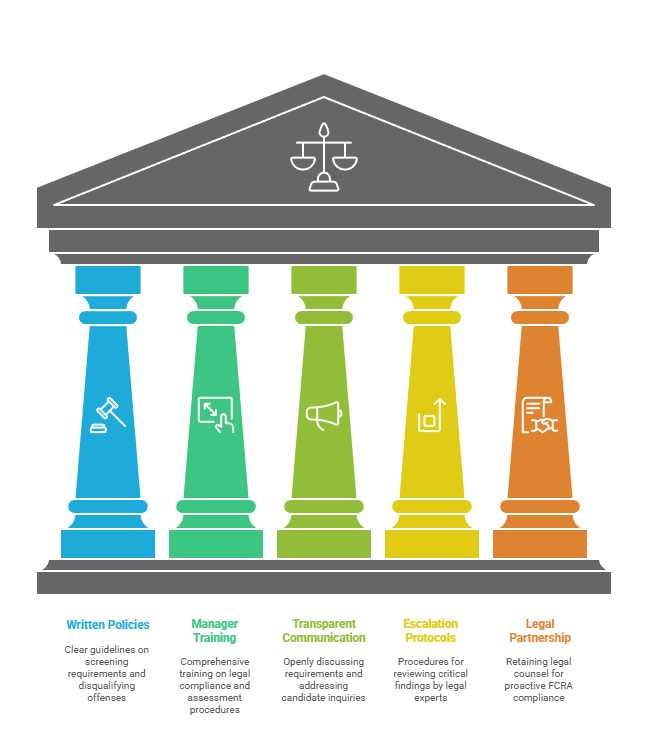Background checks for veterinary employees are essential screening tools that protect animal welfare, ensure regulatory compliance for controlled substance handling, and safeguard practice reputation. Veterinary practice managers must implement comprehensive screening protocols that address industry-specific risks including animal abuse history, DEA licensing requirements, and professional credential verification to maintain client trust and legal compliance.
Key Takeaways
- Veterinary staff background checks must screen for animal cruelty convictions and abuse records that general employment screening often overlooks.
- DEA-registered veterinary practices are legally required to conduct criminal background checks on employees who handle controlled substances.
- Comprehensive veterinary employee screening should include criminal history, license verification, education credentials, reference checks, and driving records.
- The Fair Credit Reporting Act (FCRA) requires veterinary employers to obtain written consent before conducting background checks.
- State-specific regulations vary significantly for animal care worker screening, with some jurisdictions mandating FBI fingerprint checks.
- Professional license verification is critical for veterinary technicians, veterinarians, and specialists to confirm active status and board certifications.
- Background check timing should occur after conditional job offers to comply with ban-the-box laws while protecting practices from negligent hiring liability.
- Annual re-screening of existing veterinary staff helps identify licensing changes, new criminal convictions, or credential lapses.
Why Background Checks Matter for Veterinary Practices

The veterinary industry faces unique hiring challenges that generic employment screening cannot adequately address. Veterinary practices operate in settings where employees have unsupervised access to vulnerable animals, handle powerful controlled substances, and frequently enter client homes. These distinctive circumstances create heightened liability exposure that makes comprehensive veterinary staff background verification a legal and ethical necessity.
Practice owners carry significant responsibility for protecting animal patients who cannot advocate for themselves. A veterinary technician background check that reveals previous animal cruelty convictions protects both the animals in your care and your practice from devastating reputational damage. According to industry data from 2024, veterinary practices that implemented comprehensive screening protocols experienced 43% fewer workplace incidents and 67% lower staff turnover.
The financial and reputational stakes extend beyond animal welfare. Animal hospital employee screening requirements now encompass federal drug enforcement regulations, state-level professional licensing verification, and industry-specific credential validation. A single hiring mistake can result in DEA sanctions, malpractice claims, and irreparable damage to your practice's standing in the community.
As I consider the process of background checks in a high-trust industry such as veterinary care, I don’t see obstacles in front of me—I see bridges. They span a space between responsibility and empathy, between policy and protection. In this instance, the needs of the animals won’t be heard, but ethical recruiting will ensure both the safety of the animals and the character of those treating them. This is where human resources meets compassion.
Federal and State Legal Requirements for Veterinary Employee Screening
Veterinary practices must navigate a complex landscape of federal and state regulations governing animal care worker screening. Understanding these legal requirements protects your practice from compliance violations while ensuring thorough evaluation of potential hires.
DEA Requirements for Controlled Substance Handlers
The Drug Enforcement Administration mandates specific background screening for veterinary employees with access to controlled substances. Any practice registered with the DEA must conduct criminal background checks on staff who handle, dispense, or have access to Schedule II-V drugs. These checks must occur before granting access to controlled substance storage areas, and practices must maintain documentation for DEA inspection.
Failure to comply can result in citations, civil penalties up to $10,000 per violation, or revocation of your practice's controlled substance registration. Veterinary employment verification for these positions should include federal and state criminal history checks specifically examining drug-related offenses, theft convictions, and prescription fraud incidents.
State Veterinary Board Licensing Verification Standards
State veterinary medical boards establish minimum standards for professional credential verification that vary significantly across jurisdictions. Most states require verification of veterinary licenses, veterinary technician certifications, and specialized credentials before individuals can practice. Practice managers should verify credentials directly with state veterinary boards rather than relying solely on applicant-provided documentation.
License verification should confirm active status, check for disciplinary actions, validate board certifications, and ensure continuing education compliance. Twenty-three states now participate in the Veterinary Technician National Examination (VTNE) reciprocity, but each maintains independent disciplinary records that require separate verification.
FCRA Compliance for Veterinary Hiring Practices
The Fair Credit Reporting Act establishes strict protocols that veterinary practices must follow when conducting background checks through third-party screening companies. Before requesting any background check, employers must provide written disclosure in a standalone document, obtain signed authorization from the applicant, and certify compliance with FCRA requirements.
If background check findings lead to adverse employment decisions, FCRA mandates a specific notification process. Practices must provide pre-adverse action notice with a copy of the background report, allow reasonable time (typically 5-7 business days) for the applicant to dispute inaccuracies, and send final adverse action notice if proceeding with the denial.
Essential Components of Veterinary Staff Background Verification
Comprehensive background checks for veterinary employees should include multiple verification layers that address both general employment screening and veterinary-specific risk factors. A thorough screening protocol protects your practice while ensuring fair evaluation of candidates.
Criminal History Screening for Animal Care Settings
Criminal background checks form the foundation of veterinary employee screening, but generic searches miss critical information relevant to animal care settings. Veterinary-specific criminal screening should encompass county, state, and federal databases to identify relevant convictions. The screening should identify these offense categories:

- Animal cruelty and neglect convictions
- Drug crimes and controlled substance violations
- Theft-related offenses and fraud convictions
- Violent crimes and assault charges
- Sexual offenses requiring registry checks
The lookback period for criminal history typically extends seven years for most offenses under FCRA guidelines, though some states prohibit consideration of older convictions. However, animal cruelty convictions warrant particular scrutiny regardless of age, as research indicates persistent patterns in offenders.
Professional License and Credential Verification
Professional credential verification protects practices from hiring individuals with falsified qualifications or disciplinary histories. This verification should confirm veterinarian state licenses and DEA registrations, validate veterinary technician certifications, verify specialty board certifications, and check continuing education completion. Education verification should extend beyond professional licenses to confirm degrees from accredited institutions.
The American Veterinary Medical Association (AVMA) accredits veterinary colleges, while the AVMA Committee on Veterinary Technician Education and Activities (CVTEA) accredits technician programs. Diploma mills and unaccredited online programs continue to proliferate, making direct verification with educational institutions essential.
Industry-Specific Screening Considerations for Veterinary Practices
Animal hospital employee screening requirements extend beyond standard employment verification to address unique risk factors inherent in veterinary medicine. These specialized screening components protect animals, staff, clients, and practice reputation.
Animal Cruelty and Abuse History Checks
Animal welfare protection represents the most critical veterinary-specific screening component that generic background checks routinely miss. While felony animal cruelty convictions appear in criminal databases, many animal abuse cases result in misdemeanor charges or civil citations that don't appear in standard background reports. Veterinary practices should specifically request searches of animal control records, humane society databases, hoarding investigation files, and neglect case records.
The correlation between animal abuse and other violent crimes makes these searches essential for workplace safety. FBI research confirms that animal cruelty often precedes escalation to interpersonal violence, domestic abuse, and child endangerment. Screening for these histories protects vulnerable animals while identifying candidates who may pose risks to colleagues and clients.
Drug Diversion Risk Assessment for Controlled Substance Access
Veterinary practices face significant drug diversion risks due to the volume and variety of controlled substances maintained for patient care. Background screening for positions with controlled substance access should identify red flags including prescription fraud convictions, doctor shopping patterns, pharmacy theft charges, and drug possession offenses. Credit history checks can reveal financial stress that correlates with increased diversion risk.
Reference checks become particularly important for controlled substance handlers, as previous employers may have knowledge of policy violations or inventory discrepancies. Specific questions should address adherence to drug handling protocols and inventory management accuracy. Many practices implement ongoing monitoring through random drug testing and controlled substance audits that complement initial screening.
Driving Record Checks for Mobile Veterinary Staff
Motor vehicle record checks are essential for veterinary employees who drive for work purposes. These positions include mobile veterinary technicians, large animal practitioners, house call services, and staff who transport animals or supplies. Practices face vicarious liability for employee driving during work hours.
Reviews should examine the past 3-5 years for these factors:

- DUI/DWI convictions
- Reckless driving offenses
- At-fault accidents
- License suspensions or revocations
- Excessive traffic violations
Some states require commercial driver's licenses (CDL) for vehicles over certain weight thresholds. CDL verification includes additional screening components such as Department of Transportation medical examinations and drug testing consortium participation.
Implementing a Compliant Veterinary Hiring Screening Process
Establishing standardized screening protocols ensures consistent application of background checks for veterinary employees while maintaining legal compliance. A structured process protects practices from discrimination claims and negligent hiring liability.
Timing Background Checks in the Veterinary Hiring Process
Strategic timing of background checks balances legal compliance with efficient hiring workflows. Best practice recommends conducting veterinary staff background verification after extending a conditional offer of employment but before the start date. This approach complies with ban-the-box laws in 37 states and over 150 municipalities that prohibit criminal history inquiries before conditional offers.
| Hiring Stage | Action | Timeline |
| Initial Application | Screen for minimum qualifications without criminal history questions | Day 1-3 |
| Interview Process | Evaluate skills, experience, and cultural fit | Day 4-10 |
| Conditional Offer | Extend employment offer contingent on background check clearance | Day 11 |
| Background Screening | Conduct comprehensive checks with signed authorization | Day 12-20 |
| Final Decision | Confirm employment or rescind offer following FCRA procedures | Day 21-22 |
This timeline typically requires 5-10 business days for background check completion. Communicating expected timelines with candidates maintains positive relationships while ensuring thorough screening completion.
Individualized Assessment of Background Check Findings
When background checks reveal potentially disqualifying information, federal and state laws require individualized assessment rather than blanket exclusion policies. The Equal Employment Opportunity Commission (EEOC) mandates consideration of the nature and gravity of the offense, time elapsed since conviction, and relationship between criminal history and job responsibilities.
For veterinary positions, individualized assessment should weigh specific risk factors. An animal cruelty conviction maintains high relevance for any animal care position regardless of rehabilitation evidence. However, a 10-year-old theft misdemeanor may have minimal relevance for a licensed veterinarian role. Documentation of this assessment process is essential for demonstrating compliance with EEOC guidelines.
Documentation and Record Retention Requirements
Proper documentation protects practices from compliance violations and litigation. FCRA requires retention of all background check authorizations, disclosure documents, background reports, and adverse action notices for at least five years. Background check documentation should be maintained separately from personnel files in secured systems with restricted access.
This separation protects candidate privacy and prevents inappropriate consideration of background information in later employment decisions. Electronic storage systems should include encryption, access controls, and audit trails tracking who views records.
Selecting Background Check Providers for Veterinary Practices
Choosing the right screening vendor ensures comprehensive coverage of veterinary-specific risk factors while maintaining legal compliance. Not all background check companies understand the unique requirements of animal hospital employee screening.
Essential Capabilities for Veterinary Background Screening
Veterinary-specific background check providers should offer capabilities beyond standard employment screening. Essential features include animal cruelty conviction searches, veterinary license verification directly with state boards, DEA registration verification, and multi-state criminal searches. Vendors should demonstrate understanding of veterinary industry risks and configure screening packages that address these specific concerns.
Accreditation and compliance certifications indicate vendor reliability. Look for Professional Background Screening Association (PBSA) accreditation, which requires adherence to strict accuracy standards. Vendors should demonstrate FCRA compliance expertise, including proper disclosure procedures, adverse action protocols, and data security measures.
Cost Considerations and Package Options
Background check pricing for veterinary employees varies significantly based on search depth and components included. Basic packages typically range from $25-50 per candidate and include county criminal searches, national criminal database searches, and sex offender registry checks. Comprehensive veterinary-specific packages range from $75-150 per candidate and add multi-state criminal searches, professional license verification, and motor vehicle record checks.
| Package Type | Price Range | Components Included |
| Basic | $25-50 | County criminal searches, national database, sex offender registry |
| Standard | $50-75 | Basic + multi-state searches, employment verification |
| Comprehensive | $75-150 | Standard + license verification, education confirmation, MVR checks |
The cheapest option rarely provides the comprehensive coverage veterinary practices require. Instant background checks that promise immediate results typically search only limited national databases that miss county-level records.
Ongoing Screening and Re-verification for Current Staff
Background checks shouldn't end after hiring. Ongoing monitoring of current veterinary employees identifies changes in licensure status, new criminal convictions, or credential lapses that impact practice operations and compliance.
Annual Re-screening Protocols for Existing Employees
Many veterinary practices implement annual or biennial re-screening programs for existing staff, particularly those handling controlled substances or with professional licensure requirements. These ongoing checks can identify DUI convictions that affect driving privileges, new criminal convictions, professional license suspensions, and continuing education deficiencies. While FCRA disclosure requirements apply to re-screening of current employees, the process can be streamlined through annual authorization forms.
Some states mandate periodic re-screening for certain animal care positions. Practices should implement systems that flag upcoming license renewal dates and track continuing education completion.
License Verification and Continuing Education Compliance
Professional license verification should occur at least annually for all veterinarians, veterinary technicians, and other licensed staff. Most state veterinary boards maintain online license lookup tools that display current status, expiration dates, disciplinary history, and continuing education compliance.
Continuing education deficiencies represent a common compliance issue that ongoing monitoring can prevent. Most states require 10-20 hours of approved CE annually for veterinary license renewal. Practices should track CE completion through staff development programs and provide reminder notices 90 days before renewal deadlines.
Best Practices for Veterinary Practice Managers
Implementing comprehensive screening programs requires strategic planning, clear policies, and consistent execution. These best practices help veterinary practice managers build effective background check protocols that protect practices while maintaining compliance.
Develop written policies, implement training programs, and create candidate-friendly processes that demonstrate professionalism throughout screening:

- Written Policies: Specify which positions require screening and define disqualifying offenses with job-related justification
- Manager Training: Cover FCRA disclosure requirements, ban-the-box compliance, and individualized assessment procedures
- Transparent Communication: Explain background check requirements during recruitment and respond promptly to candidate questions
- Escalation Protocols: Define which findings require automatic review by practice ownership or legal counsel
- Legal Partnership: Retain employment law counsel experienced in FCRA compliance before problems arise
Policy documentation protects practices from discrimination claims by demonstrating consistent application of screening criteria. Positive candidate experience protects your practice reputation even when background findings prevent hiring.
Conclusion
Background checks for veterinary employees serve as essential safeguards protecting vulnerable animals, ensuring regulatory compliance, and defending practice reputation. Comprehensive veterinary staff background verification must extend beyond generic employment screening to address animal cruelty history, controlled substance handling risks, and professional credential validation. Veterinary practice managers who implement thorough screening protocols, maintain FCRA compliance, and conduct ongoing re-verification protect their practices from liability while demonstrating commitment to professional standards. The investment in proper background screening pays dividends through reduced turnover, fewer workplace incidents, and enhanced client trust.
Ultimately, what makes great practice is not only about compliance—it’s about culture. It’s that trusting feeling that comes with knowing that each employee feels like they are part of something that is ethical, safe, and meaningful. Effective screening is not only about monitoring people—it’s about protecting what matters most: the animals in our care, our clients, and those who advocate for them. By screening with compassion in mind, we’re not only developing a culture of compliance—we’re cultivating a community.
Frequently Asked Questions
What should be included in a background check for veterinary employees?
A comprehensive background check should include multi-state criminal history searches, animal cruelty conviction and registry checks, professional license verification with state veterinary boards, and education credential confirmation. Additionally, include employment history verification, sex offender registry searches, and motor vehicle record checks for positions involving driving. Positions with controlled substance access require federal criminal searches and drug screening for DEA compliance.
Are background checks legally required for veterinary practices?
Federal law requires DEA-registered veterinary practices to conduct background checks on employees with access to controlled substances. State requirements vary significantly, with some jurisdictions mandating specific screening for licensed professionals while others leave background checks to employer discretion. Even when not legally mandated, comprehensive screening protects practices from negligent hiring liability and demonstrates due diligence in protecting animal welfare.
How far back do veterinary employee background checks go?
Most veterinary background checks follow the FCRA seven-year lookback period for criminal convictions, though some states prohibit consideration of older records. However, animal cruelty convictions and professional license disciplinary actions may be considered regardless of age due to their direct relevance to animal care responsibilities. Education verification and professional license checks examine credentials without time limitations.
Can veterinary practices conduct background checks on current employees?
Yes, veterinary practices can conduct background checks on current employees with proper FCRA disclosure and authorization. Many practices implement annual re-screening programs particularly for employees handling controlled substances or maintaining professional licenses. Continuous monitoring services provide ongoing notification of new criminal convictions, license disciplinary actions, or other relevant changes in employee status.
What disqualifies someone from working in a veterinary practice?
Automatic disqualifications vary by jurisdiction, but animal cruelty convictions, current DEA registration restrictions, and revoked professional licenses typically prevent employment in animal care roles. Other criminal history requires individualized assessment considering the offense nature, time elapsed, job relevance, and rehabilitation evidence. Falsification of credentials or application information generally constitutes grounds for disqualification.
How much do background checks cost for veterinary employees?
Background check costs range from $25-50 for basic packages including criminal history and sex offender registry checks to $75-150 for comprehensive screening with professional license verification and education confirmation. Specialized searches such as animal cruelty registry checks, credit reports, and federal criminal searches add $15-35 each. Volume discounts apply for larger practices conducting multiple screenings monthly.
Do veterinary assistants need background checks?
While veterinary assistants typically don't require professional licenses, comprehensive background screening remains important for these positions. Veterinary assistants have direct animal contact, may access controlled substances depending on practice protocols, and interact with clients including minors. Background checks protect animals, ensure workplace safety, and demonstrate practice commitment to hiring qualified staff.
How long does a veterinary background check take?
Standard veterinary background checks typically require 5-10 business days for completion, though timing varies based on search components and jurisdiction record access. County courthouse searches in jurisdictions without electronic records may take longer, while professional license verification depends on third-party response times. Practices should communicate expected timelines with candidates and avoid making firm start date commitments until receiving results.
Additional Resources
- AVMA Guidelines on Veterinary Practice Personnel
https://www.avma.org/resources-tools/practice-management - DEA Practitioner's Manual - Controlled Substances Security Requirements
https://www.deadiversion.usdoj.gov/pubs/manuals/pract/index.html - Federal Trade Commission - FCRA Compliance for Employers
https://www.ftc.gov/business-guidance/resources/using-consumer-reports-what-employers-need-know - EEOC Guidance on Criminal History Employment Considerations
https://www.eeoc.gov/laws/guidance/consideration-arrest-and-conviction-records-employment-decisions-under-title-vii - Professional Background Screening Association - Accreditation Standards
https://www.pbsa.org/accreditation

GCheck Editorial Team
Meet the GCheck Editorial Team, your trusted source for insightful and up-to-date information in the world of employment background checks. Committed to delivering the latest trends, best practices, and industry insights, our team is dedicated to keeping you informed.
With a passion for ensuring accuracy, compliance, and efficiency in background screening, we are your go-to experts in the field. Stay tuned for our comprehensive articles, guides, and analysis, designed to empower businesses and individuals with the knowledge they need to make informed decisions.
At GCheck, we're here to guide you through the complexities of background checks, every step of the way.






